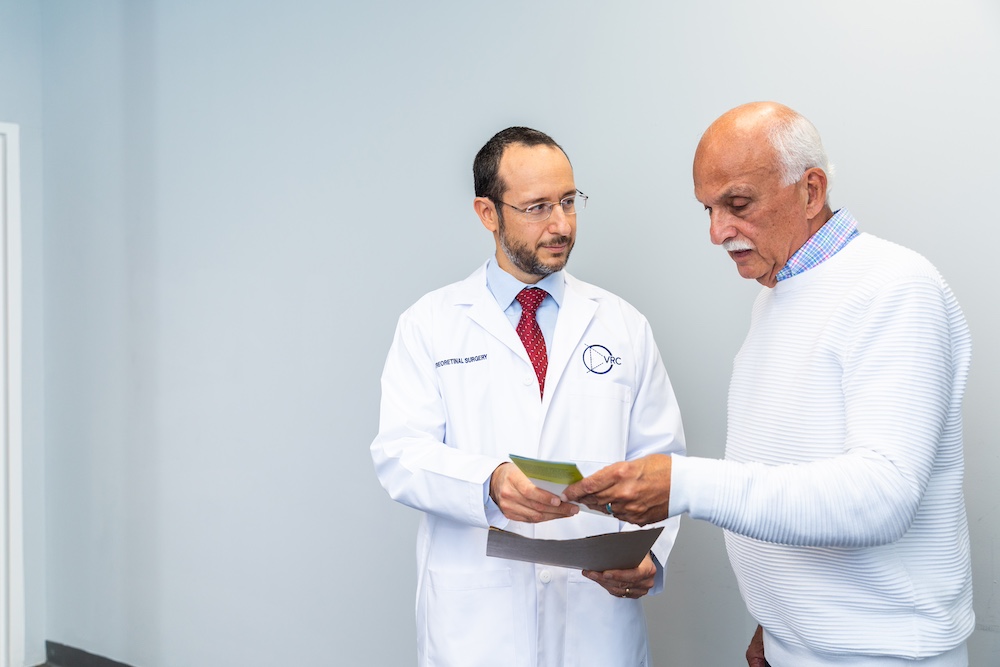Finding the Best Eye Doctor for Diabetic Retinopathy Treatment

Diabetic retinopathy is a common complication of diabetes, affecting the eyes and potentially leading to vision loss if left untreated. It's a condition that requires specialized care, and finding the best eye doctor for diabetic retinopathy is crucial for managing and treating it effectively. But what type of eye doctor should you see if you have diabetic retinopathy? In this blog, we'll discuss the best type of eye doctor for diabetic retinopathy and the specialized care they provide.
Understanding Diabetic Retinopathy
Diabetic retinopathy is a condition caused by damage to the blood vessels of the retina, the light-sensitive tissue at the back of the eye. It is a direct result of prolonged high blood sugar levels, which can weaken and damage the small blood vessels in the retina. This damage can cause the vessels to leak fluid or bleed, leading to swelling of the retinal tissue and potentially affecting vision.
Diabetic retinopathy can progress through several stages:
- Mild Nonproliferative Retinopathy: The earliest stage, characterized by small areas of balloon-like swelling in the retina's blood vessels.
- Moderate Nonproliferative Retinopathy: As the condition worsens, some blood vessels that nourish the retina are blocked.
- Severe Nonproliferative Retinopathy: Many more blood vessels are blocked, depriving several areas of the retina of their blood supply.
- Proliferative Diabetic Retinopathy: The most advanced stage, where new blood vessels start growing in the retina. These vessels are fragile and can leak blood, leading to severe vision problems.
The Right Specialist: Retina Specialists
The best type of eye doctor for diabetic retinopathy is a retina specialist. Retina specialists are ophthalmologists who have completed additional training in diseases and surgery of the retina and vitreous, the clear gel-like fluid that fills the eye. They are experts in managing complex eye conditions, including diabetic retinopathy.
Retina specialists use advanced diagnostic tools and treatments, such as:
- Fluorescein Angiography: A diagnostic test that uses a special dye to highlight the blood vessels in the retina.
- Optical Coherence Tomography (OCT): An imaging test that provides detailed images of the retina's layers, helping to identify swelling and other abnormalities.
- Laser Treatment: Used to seal leaking blood vessels or shrink abnormal blood vessels.
- Injections: Anti-VEGF medications or steroids can be injected into the eye to reduce swelling and slow disease progression.
Why Regular Eye Exams are Crucial
For diabetic patients, regular eye exams are essential for early detection and management of diabetic retinopathy. Even if you do not experience symptoms, the condition can still progress, making early diagnosis vital to preserving vision. The American Diabetes Association recommends that people with diabetes have a comprehensive dilated eye exam at least once a year.
Take Control of Your Eye Health
Diabetic retinopathy is a serious condition that requires specialized care from a retina specialist. For diabetic patients, seeing an eye specialist for regular eye exams is critical to catching the condition early and managing it effectively. Representing the leading retina practices across the United States, Retina Consultants of America’s (RCA) network connects patients all over with exceptional care for diabetic retinopathy and more. Be proactive about your vision health and find an RCA retina specialist near you.